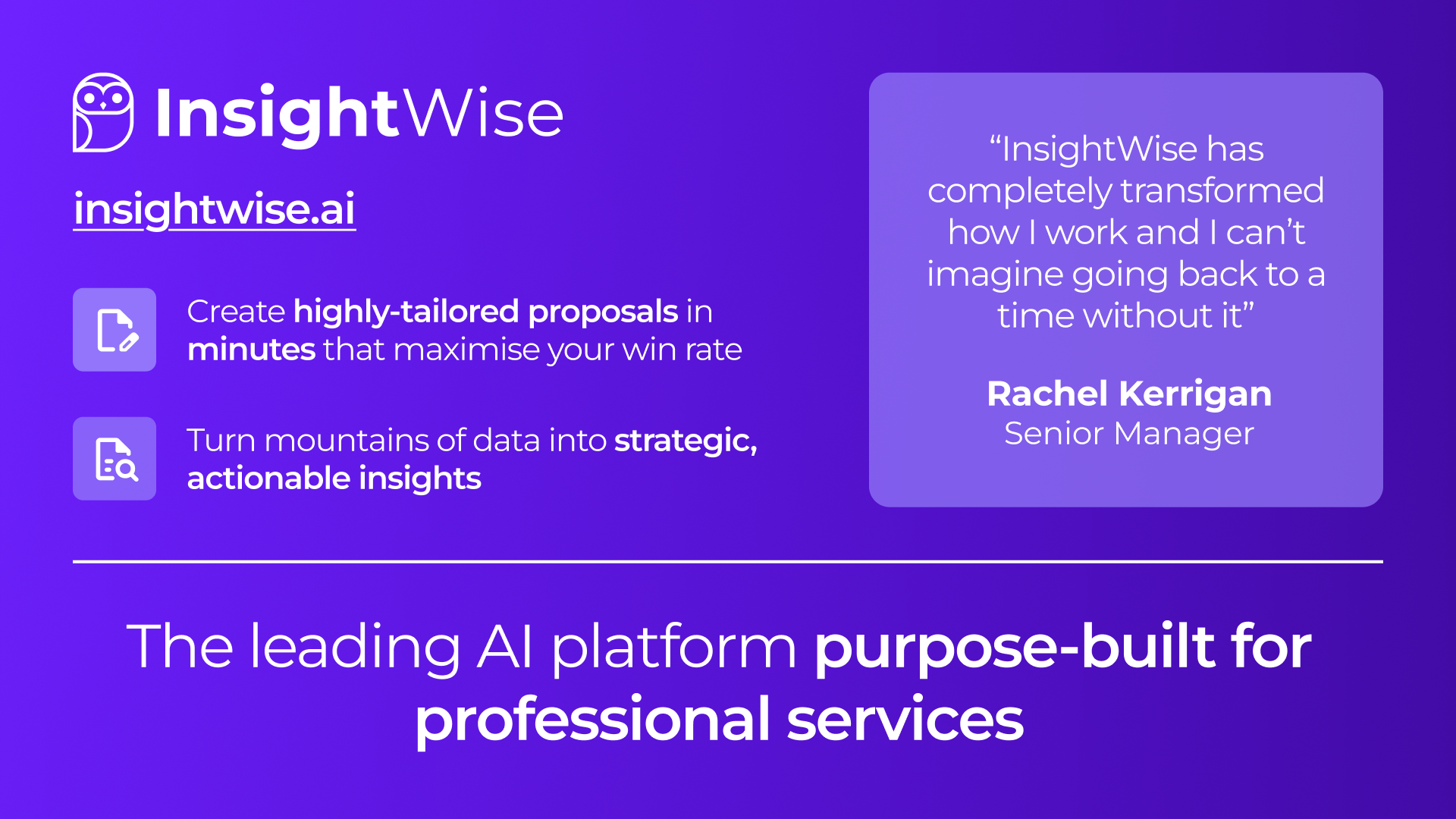According to Consult Australia’s 2025 Market conditions report, escalating business costs are the number one pressure for firms (70%). Meeting client requirements and timeframes continues to stretch teams, while concerns about work-life balance simmer just beneath the surface. One survey respondent captured the sentiment succinctly: “We are spending more time producing less.”
These pressures expose a structural problem: the operating model that supports built-environment consulting has not kept pace with the volume, complexity and documentation burden of contemporary projects.
Proposal cycles remain intensely manual. Knowledge sits in silos. Reporting requirements multiply faster than teams can absorb them. The result is what many leaders recognise instinctively: highly skilled people spending disproportionate amounts of time on the mechanics of delivering work rather than the expertise itself.
Global data reinforces the gap. McKinsey’s 2025 survey of artificial intelligence adoption shows engineering and construction are among the least mature sectors in scaled AI. Most firms report just 2-6% per cent meaningful use of advanced tools. In contrast, technology and telecommunications sectors sit well above 20%.
The 16-point adoption gap points to one thing: significant productivity left on the table. For engineers, architects, quantity surveyors and other consultants feeling the squeeze on costs, capacity and client expectations, closing that gap first could deliver an outsized advantage.
From copy and paste to proposals and insights in minutesIt is against this backdrop that InsightWise has emerged as a global leader responding to these entrenched inefficiencies. InsightWise Chief Executive Officer Katherine Tobias frames the challenge clearly: “Isn’t this 2025? How is it that people are still sitting up until midnight, cold Pad Thai on their desks, frantically copying and pasting, searching for case studies and moving boxes around on a slide?”
InsightWise is a multi-agent AI engine designed specifically for professional services. Working across the entire consulting lifecycle, from proposal to deliverable, InsightWise is trained on a firm’s own library of past proposals, case studies, CVs and project history and can assemble tailored bids in minutes.
“InsightWise thinks, writes and wins like the world’s top consultants,” Katherine notes. A built-in client evaluation panel critiques and strengthens drafts at every step. Teams can direct saved time towards insight, discernment and impact, not document assembly.
Once a project is underway, a set of agents synthesises stakeholder input, technical documents, spreadsheets and research into structured, client-ready insights written in the firm’s established voice. “We have built a sophisticated workflow with more than a thousand tasks that reflects how a top consultant operates, leveraging your track record, experience and case studies so your own IP can shine.”
Faster work, deeper thinking
InsightWise’s credibility is strengthened by the experience behind it. Katherine, the former national smart cities lead for KPMG, also served as a global director of growth for VC-backed restaurant ordering app me&u. Her Co-founder and Chief Technology Officer, Matthew Bailey, brings more than a decade of specialist AI and machine learning expertise.
The startup has attracted investment from California-based Aliavia Ventures and Tesla Chair Robyn Denholm’s family office, Wollemi Capital, and is already rolled out across global consultancies and government agencies.
“Our vision is to become the operating system for professional services,” Katherine says. “The consulting landscape is undergoing immense disruption. Yes, AI is a big part of that disruption, but there are other factors at play: shifts in business and operating models, increasing specialisation of services, and more competition for work.
“To cut through the noise, consultants need to delegate highly manual drudgery so they can focus on delivering true impact, building relationships, applying nuanced insight and human judgement.”
Katherine’s view echoes a wider sentiment. Head of IBM Consulting Mohamad Ali recently told the
Financial Times that the future of consulting will be “a hybrid of people plus software,” warning that firms unable to make the shift “are going to fall away.”
The question: “Why are we still doing this manually in 2025?” is validated by the data. It shows an industry that isn’t resistant, but one that has been, until now, underserved by tools designed for
its specialised workflows.
Learn more about InsightWise.
